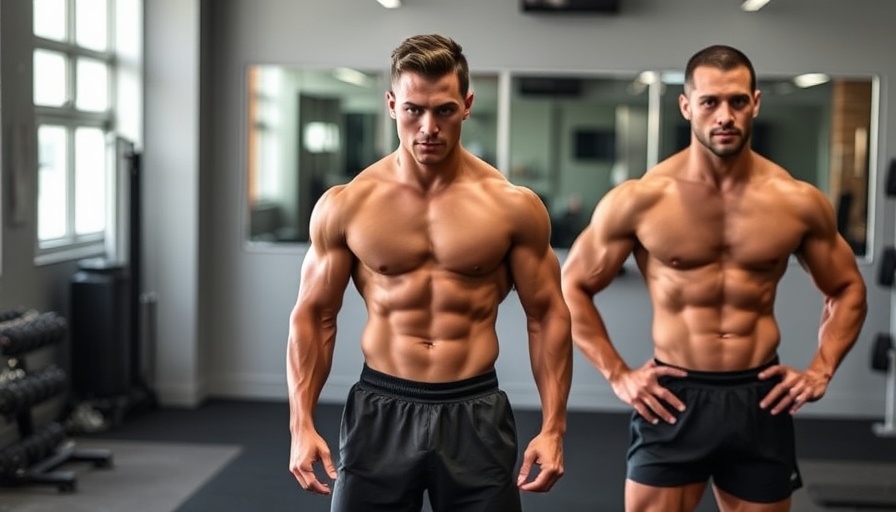
Unveiling the Deception of Fitness Influencers
Fitness influencers are not just fitness enthusiasts; they are often business strategists wrapped in a seller's aesthetics. The stark contrast between what they portray and what's real is staggering. Brian 'Liver King' Johnson serves as a notorious example, having built an empire on the idea that raw, extreme dietary practices can yield incredible physiques. However, these frontlines of honesty about hard work often obscure the truth of performance enhancers and steroids, as recently exposed in a Netflix documentary. This reality begs the question: are today's influencers just playing a part in a longstanding trend of deceit in the fitness community?
The Normalization of Deception in Fitness
Shocking revelations about figures like Johnson reveal a culture that has been longer in the making than once imagined. From the month of public admiration for Hulk Hogan in the 1980s, who later admitted to steroid use, there's a familiar pattern where fitness icons often shroud their true methods. Today's digital influencers emerge as heroes in their fitness journeys, frequently accompanied by perfectly edited images and videos, creating an unrealistic standard for followers. Yet, what they skip mentioning can drastically alter perceptions and expectations surrounding fitness and health.
The Business of Fitness: A New Frontier
The current landscape of social media and fitness presents an enticing promise to anyone willing to put in the effort. Aspirants can easily create an ebook or design an online course with minimal investment while leveraging their own fitness journeys for promotion. As personal trainer and influencer James Smith notes, subtle endorsements—a little testosterone here, a little nudging of truth there—can yield astonishing results, merely buying into a façade of credibility.
Effects on Men's and Women's Health Standards
This phenomenon doesn't solely impact the overly ambitious; it reshapes the health standards for both men and women of all ages. The pressure to achieve the unrealistically sculpted physiques depicted by influencers can diminish self-worth and mental health among their audiences. With a skewed perception of what's attainable, young individuals increasingly turn to unhealthy practices, seeking shortcuts that jeopardize their overall body wellness.
Strategies for Maintaining Authenticity
In a sea of misinformation, it's crucial to cultivate authentic health and wellness habits. Here are some practical strategies for building a balanced approach to fitness:
- Focus on Whole Foods: Integrating a variety of fruits, vegetables, and lean proteins into your daily meals can improve overall health, supporting immunity through natural health tips and nutrition.
- Mindfulness Meditation: Taking a few moments each day for mindfulness can enhance mental clarity and stress management, which are essential elements of holistic wellness.
- Daily Fitness Plans: Establishing a consistent routine that incorporates enjoyable activities can help sustain motivation without resorting to unrealistic expectations influenced by social media.
The Role of Information Sharing in Wellness
As we engage with this era of digital influencers, remember that sharing honest experiences leads to a more informed audience striving for genuine wellness. While skepticism towards extreme claims is warranted, the journey toward understanding what works best for personal health remains vital. Recognizing the blend of well-informed choices and a healthy mindset underscored by individual variations can empower followers to cultivate their unique paths to wellness.
Let's work together to foster a culture of authenticity within the fitness realm! Embrace natural habits and support resources that facilitate well-being without the allure of shortcuts. Seek advice, share your journey, and inspire others to pursue their fitness goals genuinely and sustainably.
 Add Element
Add Element  Add Row
Add Row 



Write A Comment